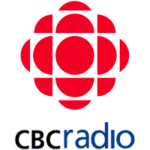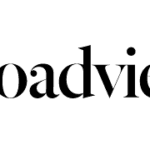 While job hunting can be an anxious time of unknowns, one thing is for certain: the role of the screening interview in securing offers has never been greater. Though video and teleconferencing have become the norm during the pandemic, connecting with potential employers remotely represents a unique challenge compared to an in-person meeting. With competition fierce for today’s job openings, standing out in this initial impression is key to moving your candidacy forward.
While job hunting can be an anxious time of unknowns, one thing is for certain: the role of the screening interview in securing offers has never been greater. Though video and teleconferencing have become the norm during the pandemic, connecting with potential employers remotely represents a unique challenge compared to an in-person meeting. With competition fierce for today’s job openings, standing out in this initial impression is key to moving your candidacy forward.
But fear not! Through some simple adjustments to your interview preparation and presentation, you can feel confident and in control of your screening interactions. In this post, we’ll explore several impactful strategies to own those screen moments and put your best virtual self forward, increasing your odds of hearing excellent news after that final “bye for now!”
What Is a Screening Interview?
A screening interview is the first step in the hiring process for many companies. This type of job interview is designed to filter out candidates who are not a good match for the position or company culture. It is typically the first step in the hiring process and often a short, 15- to 30-minute conversation.
During screening job interviews, the hiring manager will ask general questions about the candidate’s qualifications, experience, and availability. The objective is to assess whether the candidate meets the minimum requirements for the job and is a good fit for the company.
Often, these interviews are conducted over the phone or video call.
Types of Screening Interviews
Phone screenings, video screenings (including one-way video interviews), and online questionnaires are some of the different types of screening interviews that employers use to narrow down potential candidates.
Phone screening interviews require that candidates speak well and to the point, as time is limited. Video screening interviews require both good verbal and visual communication skills, as they provide an opportunity to show a candidate’s presence and demeanor. Online questionnaire screenings can be trickier, as there is little room for communication other than the answers provided.
Key Differences in Screening Interviews and Phone Interviews
Phone interviews are a popular step in the hiring process for many companies. However, it is important to recognize the key differences between phone interviews and screening interviews via phone.
While phone interviews are often a chance for the hiring manager to get to know the candidate better and ask more in-depth questions about their experience and qualifications, screening interviews via phone are typically used to quickly determine whether a candidate has the basic skills and requirements for the position. Sometimes, a screening interview will happen before you even talk to someone within the organization, either with a recruiter or talent acquisition specialist.
Understanding these differences can help candidates better prepare and tailor their approach to each type of interview.
How to Turn a Screening Interview into a Job Offer
Mastering the Basics of Screening Interviews
- Understanding the Screening Process: The first basic of screening interviews is to understand the process itself. It usually involves a brief phone call or video chat with a recruiter or HR representative to assess your qualifications and interest in the position.
- Researching the Company and the Position: Before your screening interview, it’s important to do your research on both the company and the specific position you’re applying for. Not only will this help you answer questions more confidently, but it will also show your genuine interest in the company and role.
- Anticipating Potential Questions: While every screening interview is different, there are some common questions that may be asked. These can include questions about your experience and skills (as well as how these match the role), and why you’re interested in the position. Eligibility criteria (such as availability and salary expectations) may also be discussed.
- Practicing Your Responses: Practicing your responses to potential questions can help you feel more confident during the actual interview. Consider asking a friend or family member to conduct a mock screen interview with you so you can get comfortable answering questions out loud.
- Preparing Your Environment: Find a quiet space where you won’t be interrupted and make sure your technology is working properly before the interview begins. This will help ensure a smooth and professional conversation with the interviewer.
During the Screening Interview
- Making a Strong First Impression: This means dressing professionally (whether it’s over the phone or via video), being on time, and being friendly and confident. Remember, the interviewer’s first impression of you will set the tone for the rest of the interview, so make sure to put your best foot forward.
- Answering Behavioural Questions Effectively: To answer these questions effectively, use the STAR method: describe the Situation, Task at hand, Action you took, and Result of your actions. Be specific and provide examples to showcase your skills and experience.
- Mastering the Art of Salary Negotiation: Do your research beforehand and know what the average salary is for similar positions in your area. Be confident in stating your desired salary range and be open to negotiating other benefits or perks if necessary. While this conversation might not come up in a screening interview, it is always good to be prepared just in case.
- Asking Thoughtful Questions: Use this as an opportunity to show your interest by asking thoughtful questions that demonstrate your knowledge of the company or industry. This can also help you gather more information about the role and determine if it is a good fit for you.
Following up after the Screening Interview
- Crafting a Compelling Thank You Email: You’ll want to thank the interviewer for their time, briefly highlight why you’re excited about the position, and address any specific points discussed during the interview.
- Staying Top-of-Mind with the Hiring Team: This can be achieved through simple gestures such as following the company on social media or commenting on a post.
- Highlighting Continued Interest and Enthusiasm for the Job: Hiring managers want to see that you’re eager to join their team. Be sure to follow up a week or so after the thank you email to check in and demonstrate your ongoing interest in the role. If you have any additional questions or details to share, this is the perfect time to do so.
One way to help you stand out and ensure your follow-up emails hit all the right notes is to work with an interview coach who can provide personalized screening interview help.
Sign up for Interview Coaching Today
By preparing thoroughly, showcasing your skills and qualifications confidently, and following up with gratitude and professionalism, you can turn a simple screening interview into a golden opportunity for career advancement.
Don’t let this valuable chance slip through your fingers—reach out to Canada Career Counselling for expert interview coaching! Our team of professionals will equip you with the necessary tools and techniques to ace any type of interview and land your dream job.
We offer in-person sessions, with offices in Toronto and Calgary, and online services across Canada. Alongside our interview coaching services, we also offer resume review and other job search help. Contact us today and see where this opportunity takes you!






